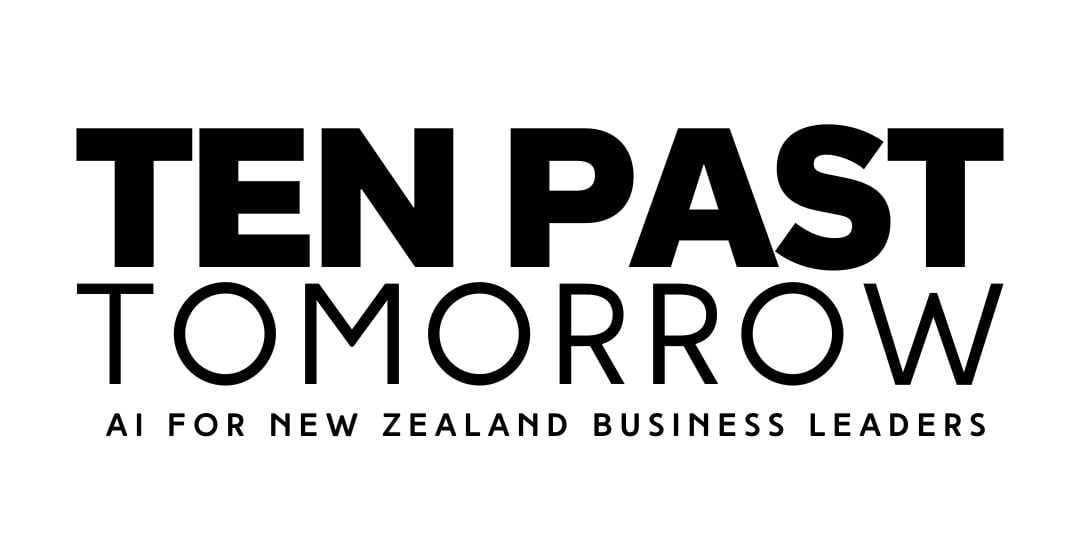AI Agents Are Coming & Why We Must Prepare Now
Foreword:
As much as I can, I avoid what I call the “futurist’s trap”. Futurists love talking about things that are coming. This is exciting for futurists, but it confuses or frustrates many people who just want to deal with “the here and now”. In this article, I dive right into the trap. Intentionally. Why? Because although the term isn’t in mainstream use yet, “AI agents” are irrefutably coming. And soon. They are “the next big thing” that all of the big tech firms are working on, and their effect on our work lives will be truly disruptive. And so I want to bring them onto the horizon, for as many of you as possible. I feel it’s critically important to give as many of you as possible as much runway as possible to plan for this technology and the evolution that it will usher in; an evolution of what work looks like and means for the vast majority of us.
Introduction
In 1966, James Goodfellow, a 28-year-old engineer in Scotland, found himself grappling with a challenge that would define his career. Tasked with developing an automated system for securely accessing money from banks after hours, Goodfellow had a groundbreaking idea: a personal identification number (PIN) system. Despite initial scepticism from his supervisors, Goodfellow persevered, convinced that his invention could revolutionise the banking industry.
As Goodfellow worked tirelessly to refine his PIN system, he couldn't help but wonder how this technology would impact the lives of bank tellers. Would they adapt to this new reality or be left behind? Little did he know that his invention would pave the way for the automated teller machine (ATM) and transform the way people interact with their money.
Fast forward to 2025, and Sarah, a (hypothetical) marketing manager at a mid-sized company, will face a similar crossroads.
The impending rise of “AI agents” has left her questioning her role and future in the industry. Will she, like the bank tellers of the 1960s, find a way to evolve with the technology, or will she struggle to keep pace with the changing landscape?
As I alluded to in my foreword above, AI agents are poised to redefine work as we know it, and businesses that fail to prepare risk being left behind.
How can I be so certain? Because in the last 6 months it has become very obvious that all of the most powerful AI labs in the world (OpenAI, Google, Microsoft, Meta, etc) and dozens of well-financed start-ups are working on this technology. They clearly see it as the next frontier in AI technology.
Don't just take my word for it though; also check out what Bill Gates, Bloomberg and Boston Consulting Group have to say about AI agents.
What exactly are AI Agents?
AI agents are autonomous pieces of software that can perform tasks and make decisions on behalf of humans.
In a nutshell, they enable humans to tell a computer what they want done, and then leave the “doing” up to the computer.
“Go into Hubspot. Turn the press release I wrote yesterday about our new dandelion and seaweed flavoured eco-coffee, into a marketing email. Add relevant images, attach it to our “All New Zealand suppliers” email list, and then leave it in my drafts ready for me to check. Notify me when you’re done.”
With the ability to type, click on buttons and navigate web browsers and software programmes, all powered by the intelligence of LLMs; they are the digital equivalent of personal assistants. They are capable of learning, adapting, and acting independently within a given environment.
(I hope I don't have to spell it out, but just in case; AI agents do not look like the image at the top of this article. They are not robots using computers. They are pieces of AI software.)
Right now, they are a first-generation technology, being built and road tested by AI companies, but not having arrived at a standard that they’re worthy of being released to the general public.
Yet.
But that will change, fast. (See my timeline below)
We are not far at all from a world where AI agents seamlessly integrate into the workflows of almost all industries, from customer service to healthcare, finance to manufacturing. In this world, AI agents will handle routine tasks with speed and precision, freeing up humans to focus on more complex, creative, and empathetic endeavours. The potential impact is staggering, but so too are the questions raised about job displacement and the changing nature of work.
Lessons (and hope) from the ATM Revolution:
The introduction of ATMs in the 1960s sparked fears of mass layoffs among bank tellers. However, as banks adapted to this new technology, a surprising trend emerged: the number of bank teller jobs actually increased. This was due to several factors:
- ATMs reduced the cost of opening new bank branches. This led to an expansion of bank branches, which in turn created more job opportunities for tellers.
- As ATMs handled simple tasks like cash withdrawals and balance inquiries, bank tellers were freed up to focus on more complex, customer-facing roles. This shift towards relationship banking required more tellers to provide a more personalised service.
- The increased efficiency brought about by ATMs allowed banks to expand their customer base, as they could serve more people without significantly increasing labour costs. This growth in the customer base created a need for more tellers to handle the increased volume of transactions and customer interactions.
I am not 100% sure that it will, but it is my sincere and strong hope that in this case history repeats, and as AI agents become commonplace in our companies and workplaces over the next 12 - 36 months, they create more jobs for us as a society.
 "There, silly human, I created some jobs for you and your society. I even made you a to-do list."
"There, silly human, I created some jobs for you and your society. I even made you a to-do list."
The ATM revolution taught us that technological advancement doesn't necessarily have to lead to job displacement. Instead, it can create opportunities for workers to upskill and take on new roles. As ATMs handled routine transactions, bank tellers transitioned into customer service representatives and financial advisors, focusing on more complex, relationship-driven tasks.
What I’m trying to say here is: If we as a society, (and as a microcosm, “we” as business leaders reading this article) plan for the coming integration of AI agents, and focus on the unique value that humans can provide, I believe businesses can navigate this transition successfully.
How long do we have?
As with anything generative AI related topic, it’s very hard to predict timelines with any certainty. The pace of development in this technology is truly breathtaking. However, if you pressed me, this is how I see the immediate future of AI agents panning out:
- Remainder of 2024: AI labs continue to develop the technology and do alpha-testing behind closed doors. Early stage AI agents are already available to use right now, through companies like HyperWrite, Multi-On, Baby AGI, and many others. I encourage you to check them out, but on the proviso that you do not believe what it says on the tin. Despite what their marketing says, these AI agents are not commercially ready yet, and do not yet deliver any practical, real-world consumer value. For the remainder of this year, I’d guess this will remain the case.
- 2025: AI agents will reach a similar level of quality to what LLMs were in 2020, when the first version of GPTs started to be released. They’ll be useful, but only for very narrow use cases, and the experience will be as frustrating as it is helpful.
- 2026/2027: An AI agent will have its “ChatGPT moment” and break into mainstream awareness through a demonstration of power, quality and utility that is impossible to ignore. This will change the game. At this point all bets will be off, and businesses that have planned ahead will be at an indescribable advantage over those who haven’t.
AI agents will bring previously unimagined wealth for some. 5-person, billion dollar companies will be created.
There will also be widespread pain. Jobs will be lost. Definitely in the short term. But my hope is that in the medium to long term, the concept of “meaningful work” for humans will be retained and flourish.
Conducting an AI Agent Impact Audit
I believe that to future-proof your company or your career, an AI audit is essential. A tip of the hat to The Marketing AI Institute, whose thought leadership I am leveraging here.
The AI Agent Impact Audit process can be done by individuals, work teams/departments, or whole companies. The process involves examining the software and platforms you use daily, to identify which tasks AI agents are likely to take over and which ones will remain in human hands.
Of course, an AI Agent Impact Audit can and will look different for different companies. As a guide though, here's a step-by-step suggestion of how to conduct an AI audit:
- Inventory: Make a list of all the software, tools, and platforms you use regularly in your work.
- Feature analysis: Break down each item on your list into its core features and capabilities.
- For each feature, ask yourself, "Could an AI agent potentially automate this task?" Consider factors such as data processing, pattern recognition, and decision-making.
- Identify the tasks that require uniquely human skills, such as creativity, empathy, and complex problem-solving.
- Based on your analysis, prioritise employee development of skills and services that complement AI agents rather than compete with them.
- For example, a social media manager might find that AI agents can handle tasks like scheduling posts and analysing engagement metrics. However, replying to community comments and building genuine relationships with followers will likely remain in human hands.
The Human Touch
In a business world that will soon be increasingly driven by AI agents (and orchestrated by humans), businesses that prioritise human-centric and relationship-centric aspects will stand out from the crowd. While AI agents will handle routine tasks and provide quick answers, in my opinion they should not replace the empathy, creativity, and personal connection that humans offer.
Consider the example of current day customer service chatbots, even today’s state of the art bots powered by generative AI models.
While they can efficiently handle common inquiries and provide 24/7 support, they fall short when faced with a complex, emotionally charged situation. In these moments, a human agent's ability to actively listen, empathise, and provide personalised solutions is still (and hopefully always will be) invaluable.
To thrive in the coming age of AI agents, businesses must focus on developing and nurturing these uniquely human skills, starting now. Get ahead of the curve, and plan on becoming a company that differentiates (and prospers) in a human-centric way, even when we’re soon surrounded by advanced machines.
Ironically, when AI agents arrive, by focusing on the human touch, businesses that can create a customer experience that is not only efficient but also deeply personal and memorable, will be the businesses that survive and prosper.
Embracing the possibilities
It's natural to feel a mix of excitement and apprehension about this technology.
I teeter along the fine line that divides excitement and fear about where this technology is taking us, every day.
Will we, like James Goodfellow, innovate, adapt and thrive in a world with AI agents? Or will we, like some of the bank tellers of the 1960s, struggle to keep pace with the changing times?
I think the answer lies in our willingness to embrace change and continuously evolve, as individuals, as companies and as society at large.
My strong hope is that in the end, the AI agent revolution is not about replacing humans but rather about enhancing our collective capabilities. I hope that it becomes an era that’s about creating a future where humans and AI agents work together to drive innovation, efficiency, and growth.
The question is not whether the AI agent revolution will come, but rather how we will choose to respond. Will you be a passive bystander, or will you be an active participant in shaping the future of work?




Got something to add? Chime in below...